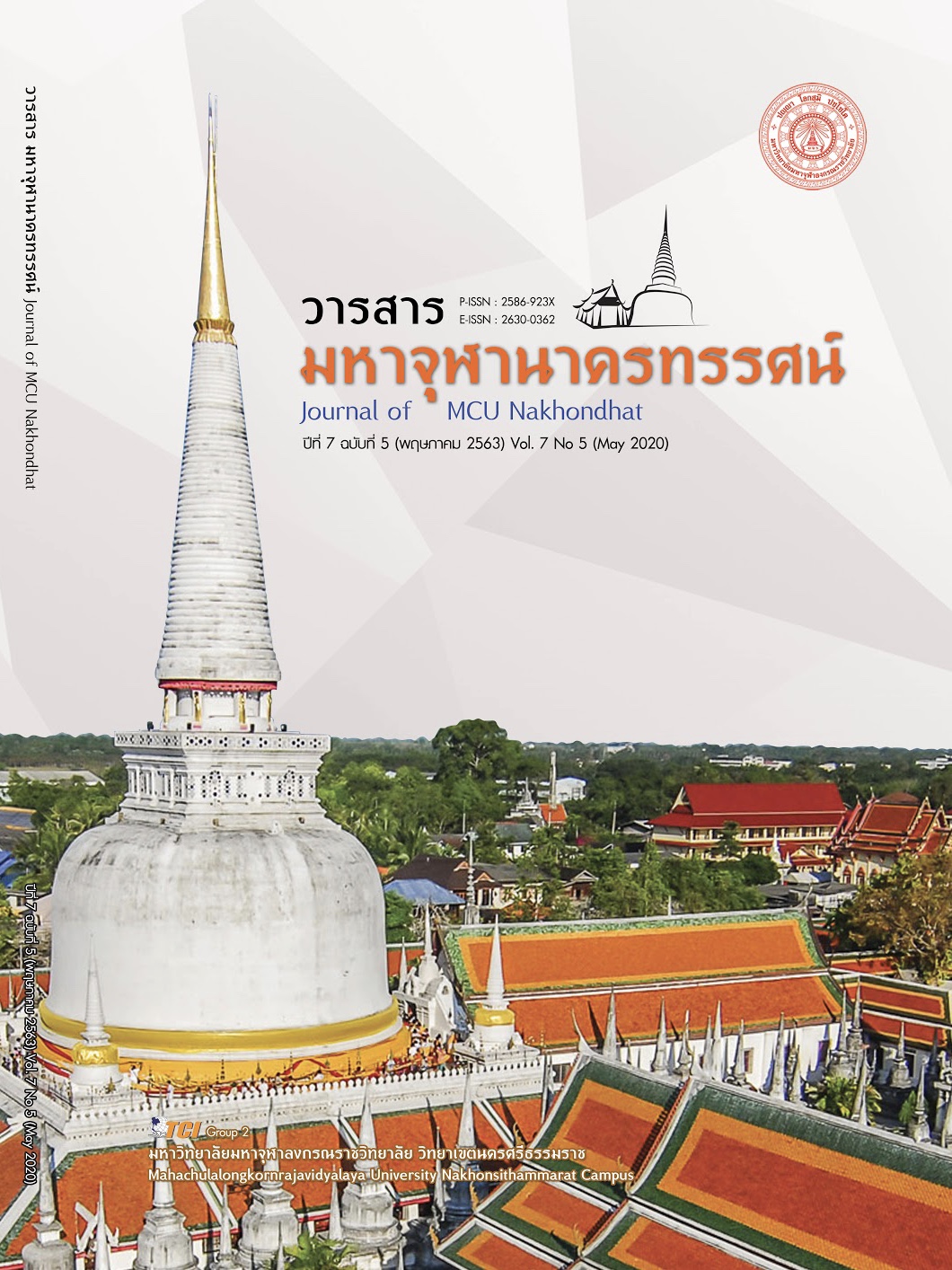THE PATRONAGE SYSTEM AND BARGAINING POWER OF POLITICAL PARTIES
Main Article Content
Abstract
Thai politics at present the patronage system is still quite powerful. Only change the method according to the time and form of society that changes according to economy and society. Especially the use of patronage systems as a mechanism for seeking political power under democracy. Until becoming a fostering democratic culture what is the nature of the patronage system and the bargaining power of political parties? The author studied from books, journals, research reports, which this article will present the relationship between upper and lower levels. Or politicians who want to come to power through the electoral process, which does not only have a foster relationship with people in the constituency but may include various actions. Which is something immoral there is a conflict or inconsistency with the rules and regulations of a democratic society, such as buying votes, corruption, etc. The patronage system is a kind of supportive relationship. The mutual benefit therefore creates a grouping or separation into clearly separate groups. Benefit for those close to you Reciprocal Focusing on seeking benefits for oneself or a group more than any other action that will be beneficial to society as a whole. This means demonstrating the lack of social responsibility and good consciousness as a citizen of the country. And as long as the patronage system is still active in politics, it will affect local and national development. It also promotes a culture of power and popularity to blossom in Thai political society. Which is totally against the democratic regime However, political negotiations may require special strategies rather than general negotiations. Because politics is a matter of power and interests both directly and indirectly
Article Details
References
จักษ์ พันธ์ชูเพชร. (2549). การเมืองการปกครองไทย. กรุงเทพมหานคร: สำนักพิมพ์พั้นช์กรุ๊ป.
ฉัตรชัย สุระภา. (2554). ระบบอุปถัมภ์ในการเมืองท้องถิ่น: ศึกษาเฉพาะกรณีองค์การบริหารส่วนตำบลธัญญา อำเภอกมลาไสย จังหวัดกาฬสินธุ์. ใน วิทยานิพนธ์รัฐศาสตรมหาบัณฑิต สาขารัฐศาตร์. มหาวิทยาลัยสารคาม.
วิศิษฐ ทวีเศรษฐ และคณะ. (2554). การเมืองและการปกครองไทย. กรุงเทพมหานคร: มหาวิทยาลัยรามคำแหง.
สีดาา สอนศรี และคณะ. (2552). เอเชียตะวันออกเฉียงใต้: การเมือง เศรษฐกิจและการต่างประเทศหลังวิกฤติ เศรษฐกิจ (พ.ศ.2540 - 2550). กรุงเทพมหานคร: โรงพิมพ์แห่งจุฬาลงกรมหาวิทยาลัย.
สุจิต บุญบงการ. (2545). ระบบอุปถัมภ์. (พิมพ์ครั้งที่ 3). กรุงเทพมหานคร: สำนักพิมพ์แห่งจุฬามหาวิทยาลัย.
อมรา พงศาพิชญ์ และปรีชา คุวินทร์พันธุ์. (2554). ระบบอุปถัมภ์. กรุงเทพมหานคร: วิญญู.
Huntington, S.P. (1986). Political order in changing societies. London: Yale University Press.
La Palombara, J., and Weiner, M. (1986). Political parties and political development. New Jersey: Princeton University Press.
Lande, E. (1996). Social Change. New York: The Macmillan Company.


